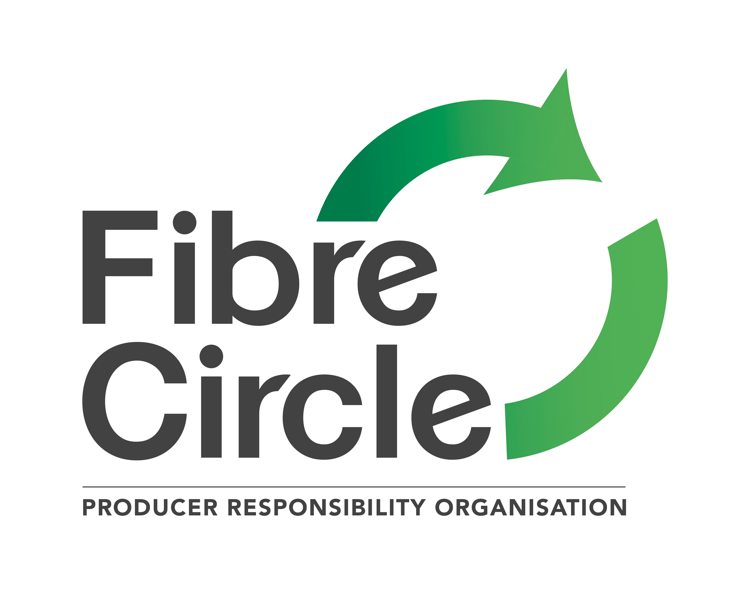Emphasising the reuse and recycling of resources requires a significant workforce to manage the myriad processes in the chain, all of which have to comply with extended producer responsibility (EPR) regulations in SA. ‘EPR regulations have introduced a positive shift towards formalising waste collection systems and driving industrywide responsibility,’ says Fibre Circle CEO, Edith Leeuta. ‘However, collaboration and scaling efforts need to accelerate to meet sustainability targets and improve employment opportunities.’
Fibre Circle is a producer responsibility organisation that manages EPR programmes to keep paper and paper packaging out of SA’s landfills.
As challenges, Leeuta refers to the low participation rates among producers, infrastructure gaps in serving rural and peri-urban areas and waste picker integration into the formal sector, which limits efficiency and fairness in the recycling process. ‘The role of waste pickers cannot be underestimated,’ says Leeuta. This is why she says Fibre Circle focuses on SMME development through programmes that aim to uplift their employability and create sustainable businesses.
The Fibre Circle SMME Development programme focuses on funding and training small businesses operating within the paper and paper packaging value chain. ‘Beyond capacity building, the programme plays a crucial role in opening up the market for SMMEs by facilitating access to business opportunities and creating linkages with larger corporates, municipalities and other key stakeholders,’ says Leeuta. ‘By fostering these connections, the programme aims to help SMMEs scale up, formalise their operations, and become sustainable contributors to the circular economy.’
Currently Fibre Circle’s programme has 18 participants, which it aims to increase by at least two in June this year. Considering the programme was only launched two years ago with nine participants, this is seen as a positive. Leeuta says that all the participants are part of the waste management value chain, ‘with over 90% of them being buy-back centres’.
Buy-back centres incentivise the recyclers of paper- and paper-based products, which means these products are diverted from landfills. ‘Our approach is a tailored, focused solution that is 100% centred on the entrepreneur, where we work with them towards determining and developing their, and their business’s desired future.
‘Currently those entrepreneurs are sited in Gauteng, Limpopo, KwaZulu-Natal, Free State, North West, Mpumalanga and the Western Cape. Our forthcoming entrants, who are currently being vetted, will hail from the Eastern Cape. On average each of our SMME’s employs 13 people on a full-time basis, but overall this averages out to anywhere between 4–56 at any one time.’
Half of those employees are youths, aged 18–35 years, and a number are entrepreneurs. Anza Muntswu is one example, says Leeuta. He founded GreenZA in Thohoyandou in Limpopo in 2021. ‘At the outset the business employed four people but has grown to 14,’ says Leeuta. ‘Part of Fibre Circle’s engagement with Anza has been around optimising his operation to take full advantage of existing equipment, as well as determining collection volumes for a path towards a sustainable operation. GreenZA’s baling process enables valorisation of commodities and will contribute towards this organisation shifting from a pure price-taking position.’
Another example she mentions is Green Pastures, owned, operated and managed by Thabiso Hlongwane, on the East Rand in Gauteng. On joining the SMME programme, Greener Pastures employed 13 people, but this number has since grown to 56.
‘Thabiso’s model is unique in that being a young man himself, he has also elected to employ only youth in the business,’ says Leeuta. ‘Greener Pastures offers comprehensive waste management services including running a buy-back centre and mall-site waste management services for a major property company, which recently renewed its contract with Greener Pastures for a further three years.
‘Thabiso is passionate about circularity and has also integrated a compost-making division into the business, using non-recyclables and food waste that are collected through the waste management offering.’
Fibre Circles’ flagship project is the Zithande Mzansi Schools Recycling programme. This is catalytic in significantly increasing recycling awareness among youth and communities, says Leeuta. This initiative, across Gauteng, KwaZulu-Natal, Limpopo, Free State and North West provinces, has not only helped in boosting material recovery but has also set the foundation for the next generation of recyclers, she says. ‘Over the past year, close to 100 schools have been reached, with an average of 100 learners per school,’ says Leeuta.
The next phase for Fibre Circle is to accelerate the strategic collaboration between the private and public sectors to further unlock sustainable waste management infrastructure, scale up municipal engagement, and implement sustainable business models in support of the EPR, says Leeuta. ‘The success of the EPR system is not just about compliance – it’s about making a meaningful difference to the environment, communities and the economy. Together, we can build a system that is fair, effective, and sustainable for future generations.’
For more information, visit www.fibrecircle.co.za or contact Fibre Circle by emailing [email protected].



